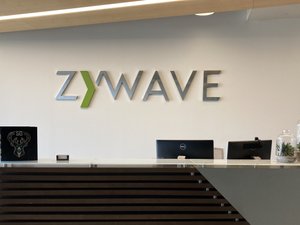
When Ben Sperry and Max Lynch launched software startup Ionic in 2012, many native app developers held their gilt-edge skills close to the chest. In a novice industry, where developer talent was highly sought after—not to mention highly profitable—Sperry and Lynch chose a drastically different approach: They built an open-source framework for web developers and gave it away for free.
“If you had those skills [back then] you could build a lot of valuable stuff,” says Lynch during a phone call. “We kind of took the opposite approach: ‘What if we made this easier?’ We wanted to make it cheaper and faster, and it evolved into open-source. It was a way to have an impact.”
Once the Ionic Framework was released, news of its developer-friendly SDK quickly gained steam on social media. Soon, a growing fan base and several high-profile apps using the company’s cross-platform hybrid development technology propelled them into the spotlight.
“Those were early fuel for us,” says Lynch, adding that the attention drew the interest of early investors. They raised their first million with Arthur Ventures during that time. “We really spent time building the community around the project. [We thought] let’s get people in our orbit.’”
In 2016, the company completed a successful $9 million Series A funding round led by General Catalyst out of Boston.
For several years, Lynch says Ionic remained a celebrated peer resource company. But as the company matured, and more requests for its consulting services flooded in, it couldn’t ignore the pent up demand from medium to large businesses struggling to navigate the digital transformation underway.
Previously, these pressures were alleviated through outsourcing, Lynch says, but today many companies are looking to bring developer teams in-house. Yet, many companies remain drastically behind. The flood of venture capital into so-called "disruption" companies—especially in concentrated areas such as Silicon Valley—only adds to the strain, Lynch adds.
“Behind the scenes … [companies] are building apps for every aspect of their business,” explains Lynch. “The competitive pressures to be ‘tech native’ is eating into every industry on earth. It’s an expensive problem. You have to get good at this or face extinction.”
Leveraging the company’s popularity among self-service developers, Lynch says Ionic created its enterprise development platform to help companies automate their DevOps processes, including with pre-built features for offline storage and secure user authentication. In 2018, the company built out a small sales team and took their commercial software solutions to the field, though “building out that engine took some time,” says Lynch.
Ultimately, it was a move that catapulted Ionic into a record revenue year.
Following an aggressive pitch to the enterprise market, the company added more than 90 enterprise customers to its roster in 2019—including several notable names such as Home Depot, Morgan Stanley, PwC and Mastercard—bringing its total enterprise customer base to more than 130, and doubling its B2B revenue stream.
"We’re fighting back and disrupting Silicon Valley."
That’s in addition to about 5,000 businesses and teams using the company’s self-service developer tools, the company said in a press release earlier this month. The year also brought major updates to its Ionic Framework product, general availability to its React version of the Ionic Framework, and a beta product for developers using the Vue JS framework.
“We are able to help [teams] that don’t have existing mobile development and help them avoid getting into the weeds,” Lynch says. “Companies see us as a lifeline to fight off these commodities. We’re fighting back and disrupting Silicon Valley.”
While Ionic declined to share specific revenue numbers, Lynch says the company is, for the first time, “on track to break even.” It feels like a dream, Lynch says, but the company isn’t content sitting on its laurels. Over the next year, Ionic is setting its sights on disrupting the low-code and no-code markets, and positively impacting people’s lives by improving their ability to use and build tech.
“We’re working on bringing back that original mission,” says Lynch, adding that an announcement around those efforts could come later this year. “It will be a new way to experience what we’ve built.”








